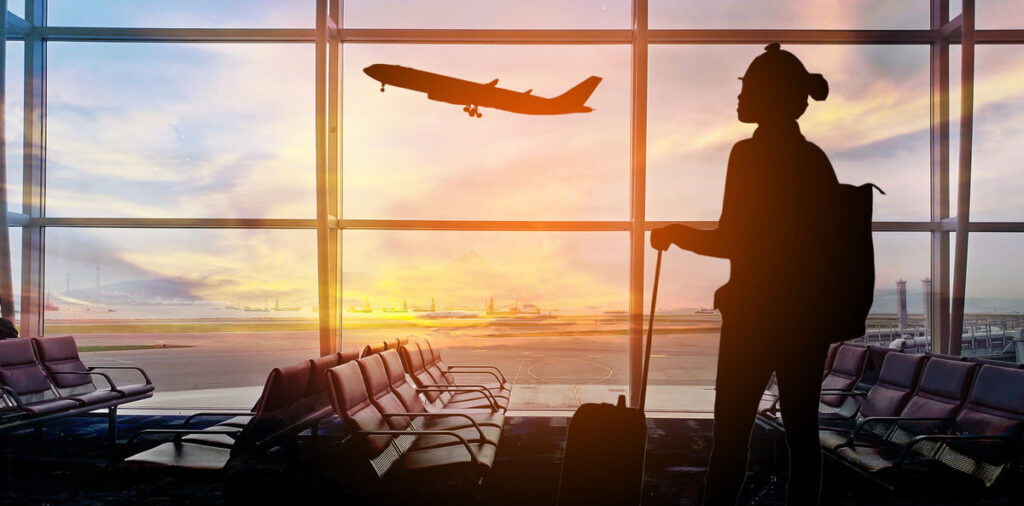
Practically every week there’s a new travel industry report filled with predictions or assessments about the behavior of consumers.
A recent Fall Consumer Trends report, for instance, indicated that Americans are freely spending on holiday travel (as much as $311 billion on holiday flights and hotels), while a separate report pointed out that tariffs are taking a big bite out of discretionary spending among Americans, many of whom are planning to stay home altogether this holiday season because of economic worries.
The truth likely lies somewhere in the middle of these two extremes.
Enter yet another new report, with still more data about travel behavior among Americans. The headline for this one (from Phocuswright): Behind steady demand, traveler priorities are being rewritten.
That is indeed a provocative, thinker headline. But what does that mean exactly? Here are some of the top-line findings from a summary of the Phocuswright research:
Travel is steady, but spend is under pressure. (Average annual spend has declined, per the report)The rate of travel was flat over the past 12 months.Travel and tourism is no longer the top priority for discretionary spending, suggesting tighter wallets and trade-offs being made.Travelers are considering roadtrips in lieu of air travel should airfare become too expensive for them. They may also consider not traveling at all in order to save their money for other goods and services. Younger travelers are more cost-conscious, leveraging OTAs more in order to utilize the price comparison capabilities.
This is the second consecutive year in which Phocuswright data has revealed a heightened price sensitivity among consumers, not only in annual spend, but in how travelers shop and choose trip components.
Perhaps more importantly for travel industry insiders, the report summary adds this statement, in order to underscore the changes now unfolding: “For the first time, travel and tourism is not the top discretionary category, indicating outside pressures are reshaping choices.”
The information from Phocuswright is based on an online consumer survey conducted between late August and early September that targeted the general U.S. adult population and specifically those who have internet access and travels for leisure.
In addition, to qualify for participation in the study, respondents had to indicate they’ve taken at least one overnight leisure trip in the past 12 months of at least 75 miles from home. On top of that, participants must have played an active role in planning and booking their leisure travel.
All of which is to say, these data points are coming straight from Americans themselves.
Yet, when you ask travel advisors and others closely connected with the travel industry, a different, more nuanced story often emerges. It’s a tale of two Americas.
Increasingly Split Travel Market
As the economy worsens, with the Trump Administration’s tariffs ratcheting up the cost of everything from groceries to automobiles and even new homes, many Americans are indeed feeling the pinch.
“I’m observing a bifurcation in traveler behavior—where mainstream travelers are making trade-offs, while luxury clients are doubling down on curated, high-value experiences,” says Grace Olayiwola, founder of BitsStyleJourney Luxury Travel Concierge.
For the mass market, travel may no longer be a top priority, says Olayiwola, but for the affluent traveler, it remains essential. Olayiwola’s high-net-worth clients view travel “as an emotional and experiential investment, not a discretionary purchase.”
“They’re prioritizing meaningful, well-executed escapes over frequent, mediocre ones,” Olayiwola adds.
In other words, for the well-heeled traveler, rather than spending declining Olayiwola (and others who cater to this demographic of traveler) instead are seeing more demand for return on their investment. Meaning, those with plenty of money are spending the same, or even more on travel, but with “higher expectations of personalization, privacy, and peace of mind.”
They’re seeking curated itineraries and concierge-led planning that guarantee seamlessness and value.
Meg Kinnerk, founder of That Resort Girl, a luxury travel brand with 120-plus advisors helping families plan vacations, says she’s not seeing clients hold back on spending either.
But Kinnerk is also hesitant to categorize her clients as high net worth.“They are two income households, so that does make a difference when it comes to disposable income and vacation spend,” says Kinnerk. “The average cost of a trip we book is $9,000 to $12,000, with some being lower, and some higher. That’s about average for a family of four for a week long all-inclusive, Disney, or cruise.”
Casey Halloren, CEO and co-founder of Costa Rican Vacations, says his company witnessed a soft patch earlier this year – with bookings down roughly 8 percent and average trip values slipping by almost 10 percent – but that has since shifted.
“We took that as an indication of travelers being cautious, so we took measures to be aggressive in offering deals, add-ons and payment plans,” says Halloren.
“In the past 45 days, we’ve seen a nearly-full rebound. Both volume and average ticket are returning to previous levels,” Halloren added. “Overall, we’re cautiously optimistic heading into the new year.”
As for whether more travelers are opting for road trips versus flying, as the Phocuswright data indicates, there may indeed be some truth to that too.
Olayiwola, of BitsStyleJourney Luxury Travel Concierge says absolutely that is happening in the broader market, but is quick to add: “But my clients aren’t choosing between airfare and a road trip; they’re choosing certainty over chaos,” she explains.
“With rising airfare volatility and operational challenges, they turn to us to insulate their experience—securing private transport, premium cabins, and flexible solutions that eliminate travel friction entirely,” Olayiwola says.
As she sees it, the data reflects an increasingly split market: Those scaling back and those redefining what premium means. And the luxury traveler, at least, isn’t retreating from travel—they’re refining their travel goals.
For the latest travel news, updates and deals, subscribe to the daily TravelPulse newsletter.

